In an increasingly competitive business and professional market, the accumulation of pressures increases. Maintaining a stable career today is often synonymous with stress, anxiety and other types of mental suffering, making mental health in the workplace even more critical.
According to WHO data, mental and behavioural disorders are among the leading causes of lost workdays worldwide. Mild cases cause an average loss of four days of work/year, and severe cases about 200 days of work/year.
Currently, more than 300 million people suffer from depression around the world, which is the main cause of incapacity for work. Over 260 million live with anxiety disorders. Many of these people live with both disorders.
Why is mental health in the workplace important?
Workplace frustrations are common and happen all the time, whether it’s the threat of job loss, unrecognized performance, everyday failures, complicated relationships, job dissatisfaction or productivity pressures.
However, all these afflictions can be alleviated in an environment that provides the necessary conditions for mental health.
Work is excellent for mental health, but a negative work environment can lead to severe complications. Harassment and intimidation at work are commonly reported problems and majorly impact people’s quality of life.
Mental health and work constitute a serious and complex relationship. The company and its managers must be aware of the signs of employees with possible psychological disorders. One of the first reactions to be noticed is the change in behaviour and mood. The person becomes quieter, avoids social contact, and may become more aggressive and less tolerant.
Workplaces that promote mental health and support people with mental disorders are more likely to reduce absenteeism, increase productivity and benefit from associated economic gains.
Mental health and work — what are the risk factors?
There are many risk factors for mental health that can be present in the workplace.
Most risks are related to interactions between the type of work, the organizational and managerial environment, the skills and competencies of employees, and the support available to employees to carry out their work.
A person may have the skills to complete tasks but few resources to do what is needed. Another example is where there may be unsupported managerial or organizational practices. Some mental health risks include:
- inadequate health and safety policies;
- poor communication and management practices;
- limited participation in decision-making or low control over the work area;
- low levels of employee support;
- inflexible working hours;
- obscure tasks or dubious organizational goals.
Risks can also be related to job content, such as tasks that are inappropriate for the person’s skills or a high workload. In addition, it leads to the harmful use of alcohol and psychoactive drugs. The risk may be increased when there is a lack of team cohesion or social support.
Moral and psychological harassment are commonly reported as causes of work-related stress. They can also have a negative impact on employees’ families and social interactions.
These health consequences can cost employers reduced productivity and increased staff turnover.
How can the company help with mental disorders in the workplace?
A recent guide published by the World Economic Forum suggests that interventions in organizations should take three approaches:
- protect mental health by reducing work-related risk factors;
- promote mental health by developing positive aspects of work and employee skills;
- tackle cases of mental health problems regardless of the cause.
Other measures include understanding the opportunities and needs of individual employees and helping to develop better policies for mental health in the workplace.
The guide also suggests alerting employees to support tools and where Many services we offer to our members are available to employees and their families. Services include:
- Free and confidential counselling through your Employee and Family Assistance Program (EAP)
- Free access to “Stronger Minds” resources through MindBeacon
- Free and confidential access to iCBT through MindBeacon






